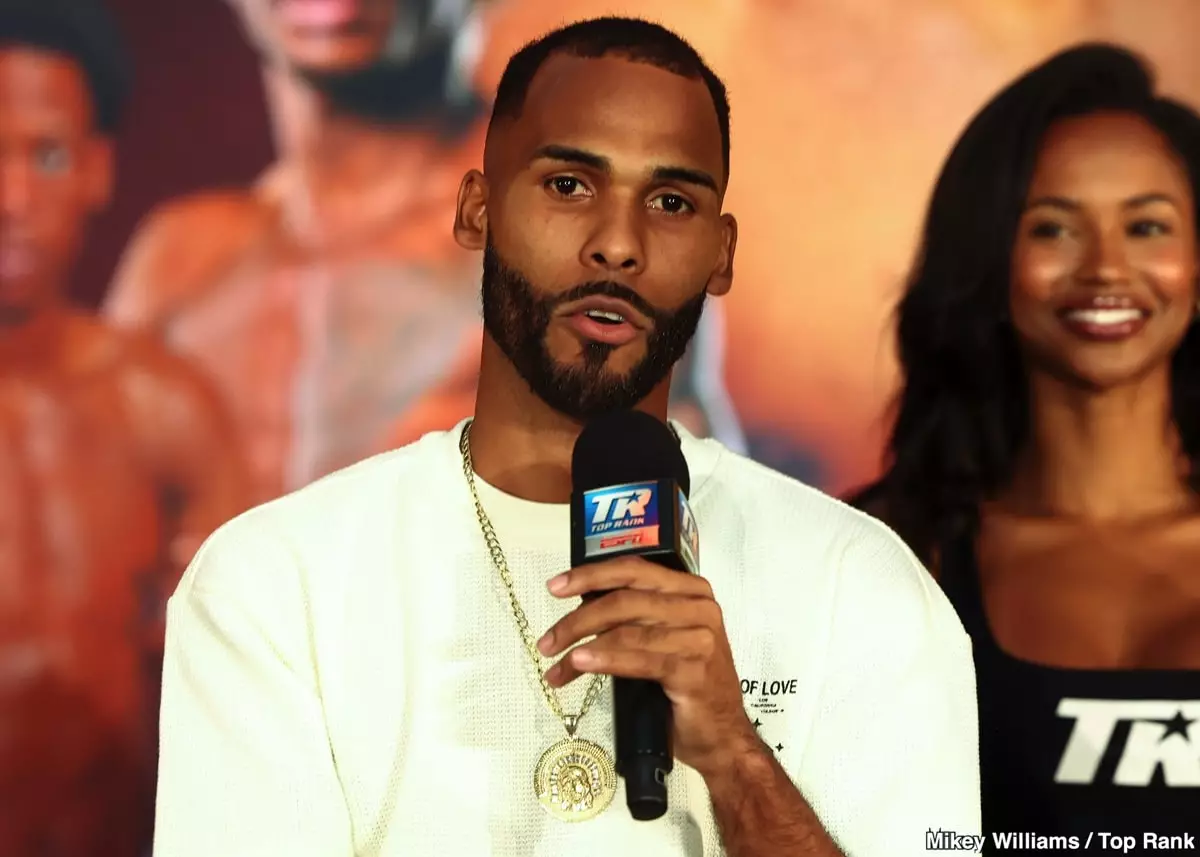In the fast-paced world of professional boxing, the importance of adhering to weight classes cannot be understated. Recently, former WBO lightweight champion Keyshawn Davis’s failure to make weight has rocked the boxing community and highlighted the precarious balance of ambition and safety in the sport. Registered at over four pounds overweight before a scheduled fight against Edwin De Los Santos, Davis’s misstep has not only harmed his own reputation but also left his opponent in dire straits. Such a situation is emblematic of a larger issue within the sport regarding the stringent rules that often seem to be pushed aside in favor of revenue and fame.
The implications of Davis’s weight issue extend far beyond the immediate fallout. De Los Santos was prepared and eager to seize a major opportunity, believing he could secure the WBO title. However, with Davis’s significant weight advantage, the fight would have raised serious safety concerns had it proceeded. As boxing promoters and managers scramble to prioritize their fighters’ health and career prospects, the industry must engage in deeper reflection and reform regarding the consequences of missed weights.
The Impact on Vulnerable Fighters
One cannot overlook the predicament faced by De Los Santos. Unintentionally sidelined due to someone else’s indiscretion, he has found himself at a crossroads. Yet, his story is one of resilience. Despite being offered a meager sum to fight a significantly heavier opponent, De Los Santos exhibited an unwavering desire to compete. According to his claims, even after being offered only $50,000 to continue the fight, he would have rather gambled on glory than take the prudent path. This sentiment reflects the warrior spirit embodied in professional fighters, but it also raises an important question: how far should a fighter go in pursuit of their dreams?
De Los Santos felt it was a worth risk, despite promoter Sampson Lewkowicz’s refusal to allow the fight to proceed on safety grounds. Lewkowicz’s stance, though protective, placed De Los Santos at a disadvantage—further deepening the emotional and financial impact of their managerial split. A consequence of this debacle is that De Los Santos is now in search of a new promoter, uncertain about the direction his career will take moving forward. It’s a worrisome place for any fighter to find themselves, especially after a long period of inactivity.
Financial Consequences and Career Uncertainty
While De Los Santos may have walked away with a small paycheck, the potential earnings lost are staggering. He would have had a far larger payout had the fight occurred as originally scheduled. It’s a bitter pill to swallow—he not only missed out on potentially winning a title but also on a substantial financial incentive that could have bolstered his professional standing. Such circumstances can amplify the pressures on fighters who often operate on tight schedules, constantly seeking out fights to maintain their relevance in the incredibly competitive landscape of boxing.
This financial dynamic extends beyond individual fighters to the larger boxing ecosystem. Promoters, sponsors, and media partners all have a vested interest in the outcome of fights, particularly those involving high-stakes championship bouts. The consequences of one fighter’s failure to adhere to weight rules can have rippling effects throughout the entire promotional landscape, leaving fighters like De Los Santos scrambling for new opportunities while simultaneously stifling the commercial prospects of promotional entities.
Seeking New Partnerships in a Complicated World
Given the volatile nature of boxing promotions and management relationships, the path forward for De Los Santos is fraught with uncertainty. He expressed hopes to find someone capable of managing his career effectively, a necessary transition after parting ways with Lewkowicz following the fallout of Davis’s weight situation. Yet, who will step up to publicly champion a fighter recently marred by tumult? Navigating this landscape of potential partnerships could prove incredibly challenging, especially as De Los Santos remains on the sidelines, having been inactive since he lost to Shakur Stevenson over a year ago.
For De Los Santos, the desire to reclaim his career goes beyond just finding a manager, as it embodies the very essence of what drives competitive athletes in boxing. It’s about resilience, ambition, and harnessing a fighting spirit that refuses to be extinguished, even in the face of adversities like the recent debacle. The boxing community must remain vigilant to ensure that an individual fighter’s peril doesn’t become a trend, as De Los Santos seeks to rise from this unceremonious chapter in his career. His journey is a testament to the stakes involved in professional boxing, where each match can alter a career trajectory and redefine what it means to rally back from disappointing setbacks.


Leave a Reply